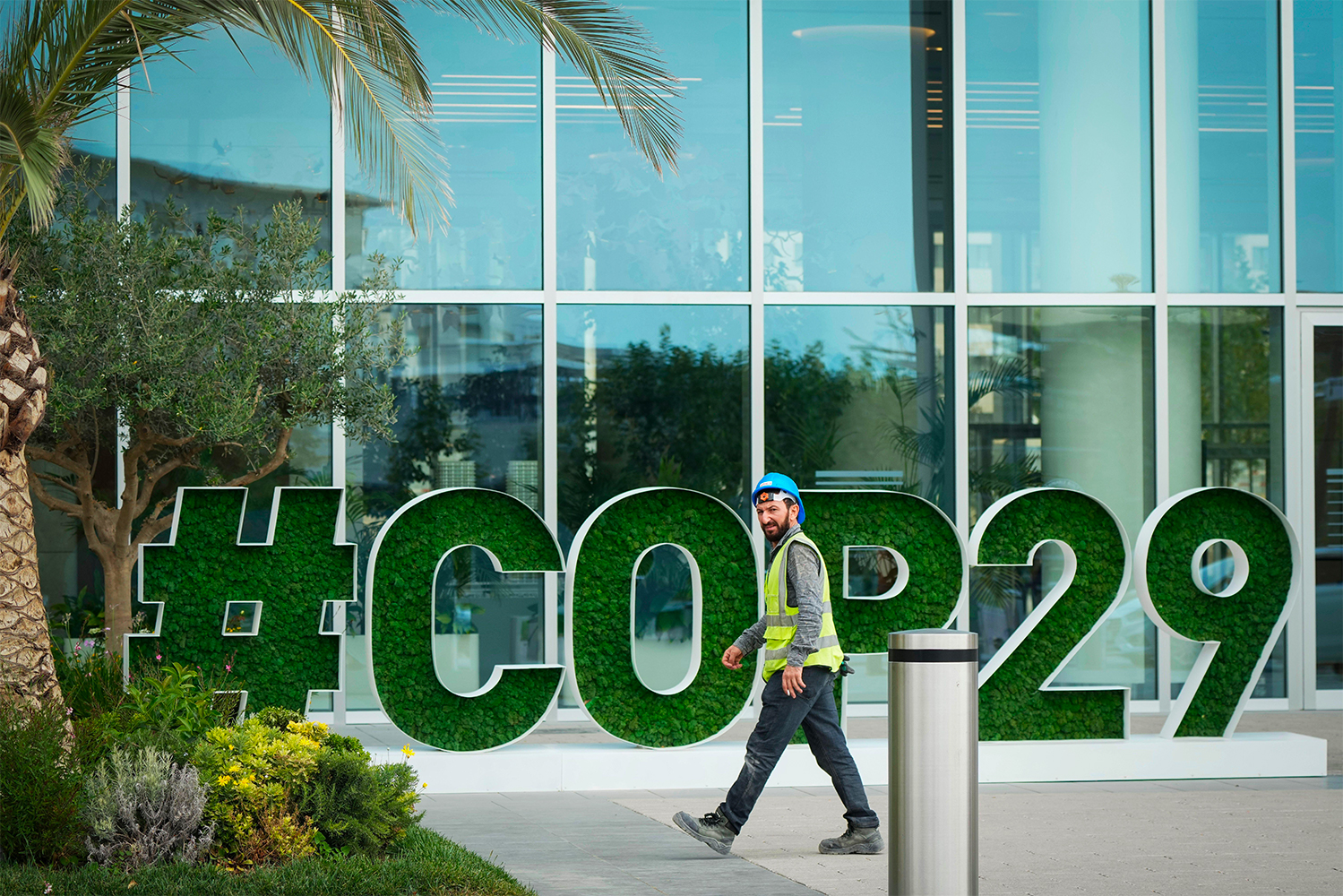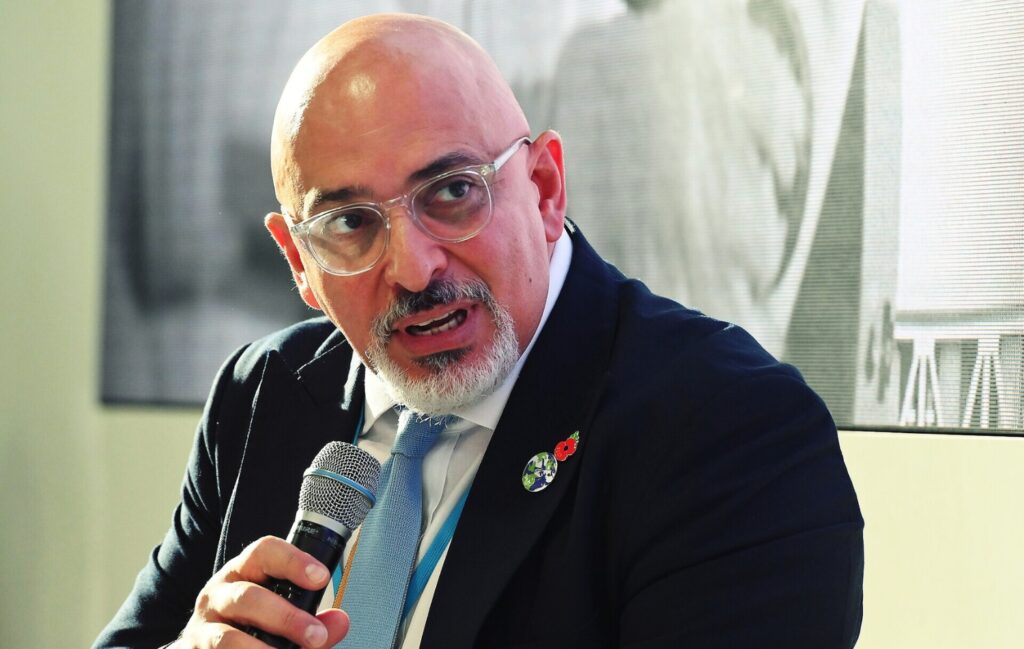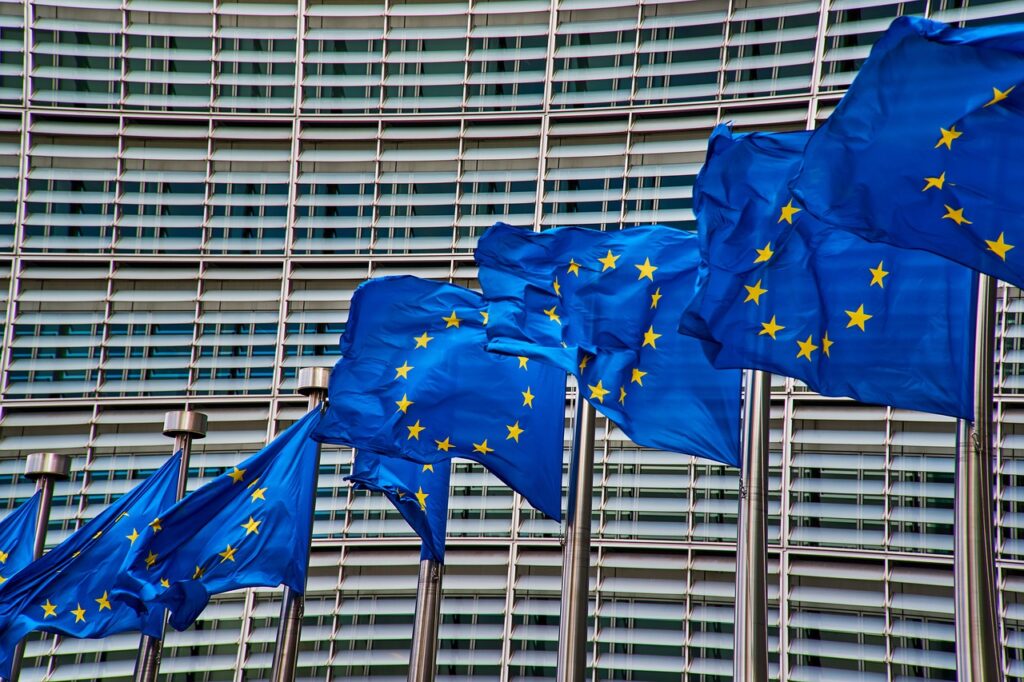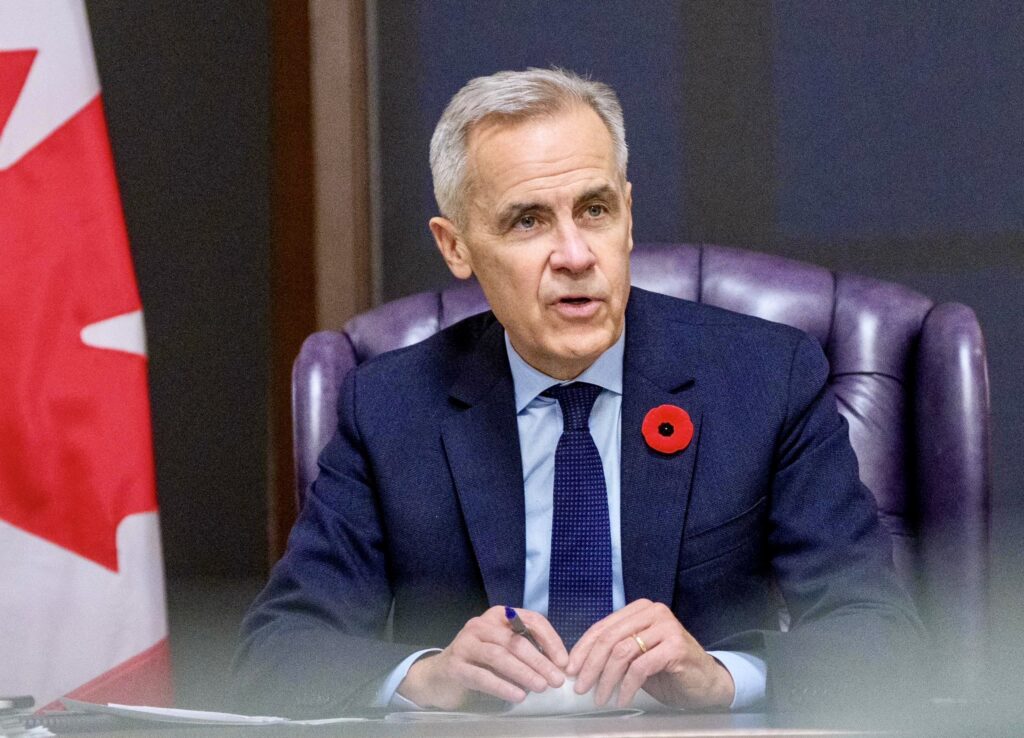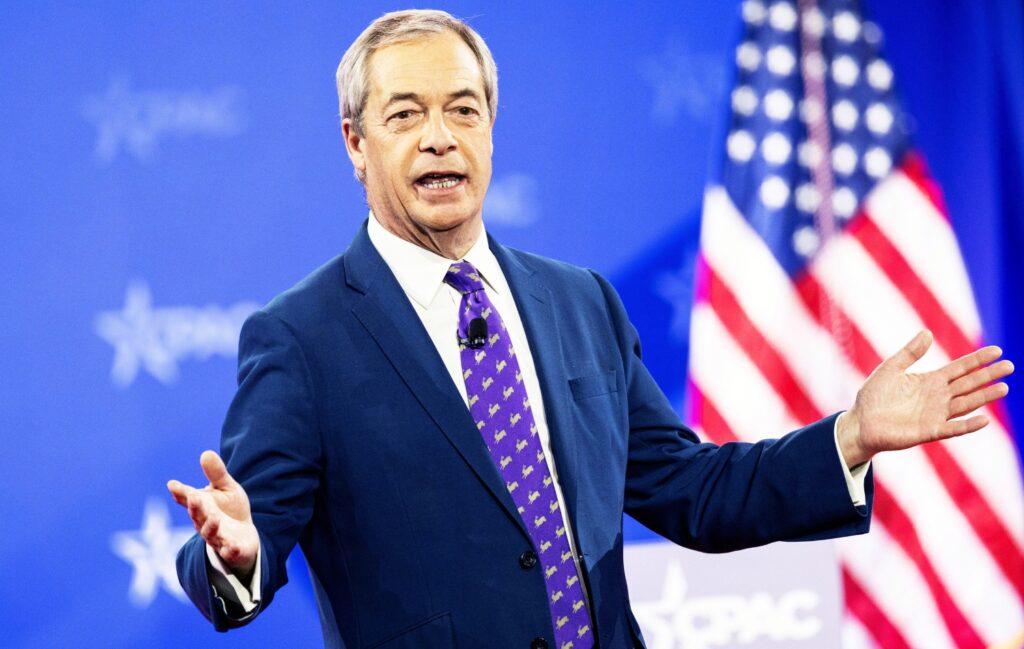The UK’s pavilion at this year’s flagship climate conference is being co-sponsored by an industrial software firm that has worked for some of the world’s biggest polluters, DeSmog can reveal.
This year’s conference will begin next week (11 November) in Baku, Azerbaijan, and the new UK government has vowed to be an international climate leader, with Prime Minister Keir Starmer and Net Zero Secretary Ed Miliband both set to attend the talks.
The government earlier this week announced the sponsors of the UK COP29 pavilion, which will host a number of events featuring politicians, climate experts, and businesses.
The sponsors include AVEVA, a software company which indicated in December 2023 that it had over 600 oil and gas customers.
Subscribe to our newsletter
Stay up to date with DeSmog news and alerts
AVEVA claims that firms use its technology to “operate more efficiently, consume less energy, and reduce waste”. However, AVEVA has boasted on its website that its software has also been used to help fossil fuel companies to extract more oil and gas.
For example, the firm claims that “by implementing AVEVA software solutions to automate its refinery processes, Kuwait Oil Company is on track to achieve its goal of producing 4 [million] barrels of oil per day by 2030.”
AVEVA has also worked for some of the world’s largest and highest-emitting fossil fuel companies, including: Shell, ExxonMobil, BP, Chevron, and the Abu Dhabi National Oil Company (Adnoc).
Alongside AVEVA, the pavilion is being sponsored by DP World, the multinational logistics company owned by the Dubai government in the United Arab Emirates (UAE). The UAE derives roughly 40 percent of its income from oil and gas, while its overall climate action has been rated as “critically insufficient” by the Climate Action Tracker, an independent scientific project that measures government policies against the 2015 Paris Agreement.
The government was forced to repair relations with DP World in October, following criticism of its subsidiary P&O Ferries by Transport Secretary Louise Haigh, who had called the firm a “rogue operator” in 2022 after it sacked 800 seafarers.
The UK pavilion is also being sponsored by the Corporate Leaders Group (CLG) – a business leadership forum based in the University of Cambridge. The CLG’s UK members include the tech giant Amazon – a major polluter that created more CO2 equivalent emissions than Switzerland in 2022 – as well as AVEVA, and Heathrow Airport. Air travel contributes significantly to global emissions, and the current UK government is currently split over plans to allow a new runway at Heathrow.
The CLG said it is “partnering with the UK government to enable private sector engagement at COP29 in Baku, Azerbaijan. CLG UK has been a consistent and constructive forum for business leaders to engage in support of high ambition climate policy at UK and international levels.”
Other sponsors include the energy company SSE, and the National Grid – which currently operates the largest liquid natural gas (LNG) terminal in Europe.
The sponsors of the UK pavilion are called its “official COP29 partners”, allowing these corporations to host events featuring their spokespeople. And, while they are not afforded access to official negotiations, sponsors are given the opportunity to shape influential decision-makers through the UK’s side events.
The government set climate conditions on the prospective sponsors of the pavilion, saying that they had to be making “real contributions to the fight against climate change” and had to “have strong climate credentials”.
Zack Polanski, deputy leader of the Green Party, said it was “alarming” to hear that the UK pavilion will be sponsored by organisations connected to oil and gas giants.
He added: “Earlier this year, the UN accused fossil fuel companies of running ‘a massive misinformation and disinformation campaign’ to slow down the adoption of renewable energy and the transition away from a carbon-intensive economy.
“We are facing a climate emergency, and we need a firewall between policymakers and the oil and gas lobby to prevent their malign influence from dictating our efforts to tackle climate change.”
An AVEVA spokesperson said that the company “believes industrial digitalisation is revolutionising decarbonisation strategies and we are committed to accelerating measurable action on the world’s path to net zero. Our work with more than 20,000 global enterprises across diverse industrial sectors shows how cross-sector collaboration based on industrial insights is driving deeper levels of actionable sustainability impact while continuing to deliver the essentials of life.”
DP World declined to comment.
AVEVA’s Fossil Fuel Clients
AVEVA lists the oil and gas industry as one of the company’s eight key sectors, boasting of its ability to “drive increased asset reliability, performance and safety”.
In November last year, the firm hosted an event in San Francisco, California, which played host to “more than 600 oil and gas customers”, according to AVEVA.
The company’s “success stories”, listed on its website, include projects with some of the world’s largest fossil fuel companies – often touting AVEVA’s work in improving their output or performance.
For example, AVEVA states that after Shell deployed its software, “the company began to gather operational data at an oil field in the Gulf of Mexico to improve performance of its wells, rigs, and drill floor equipment.”
Shell is still committed to exploring for new sources of oil and gas and does not have any plans to reduce the overall amount it produces by 2030. In 2021, the District Court of the Hague found that the total CO2 emissions of the Shell group exceeded the emissions of many states, including the Netherlands.
In relation to the Italian fossil fuel giant Eni, the AVEVA website says that the oil company’s “long-term success hinges on the combination of optimising a network of upstream assets while locating new extraction opportunities”. AVEVA therefore helped the company “to optimise asset configuration and maximise oil production across sites.”
According to the campaign group Reclaim Finance, Eni invested €12.9 in oil and gas for every €1 in its low-carbon business in 2023, while its short-term expansion plans mean that Eni’s fossil fuel production will be 49 percent higher in 2030 than the level required to align with net zero emissions by the middle of the century.
AVEVA has also worked with Chevron, the third largest oil and gas company in the world by market capitalization, and used its software to boost “asset performance in a declining gas field”.
The world’s leading energy organisation, the International Energy Agency, has said that the exploitation and development of new oil and gas fields must stop immediately if the world is to stay within safe limits of global heating and meet the goal of net zero emissions by 2050.
The annual COP summit allows negotiators and leaders across the globe to put in place commitments to address the climate crisis and assist the worst-hit countries.
The world’s foremost climate science body, the UN’s Intergovernmental Panel on Climate Change (IPCC), has stated that unabated fossil fuels must be phased out as quickly as possible in order to limit global warming to 1.5C.
This goal, established by the 2015 Paris Agreement negotiated at COP21, is designed to limit the worst and most irreversible impacts of climate change – including droughts, flooding, and poverty.
The new Labour government has put in place a series of measures to promote renewable energy investment, including the creation of a state owned energy company, GB Energy, and a pledge to ban new oil and gas licences. Miliband told the UN in September: “The world has been waiting for too long. Now is not simply the time for bold words, it is the time for bold action. And in the new United Kingdom government, you have a government committed to take that action in partnership with states around the world.”
However, the UK’s choice of COP29 partners has brought these commitments into question.
A Department of Energy and Net Zero spokesperson said: “We have set stringent conditions for companies wishing to sponsor the UK Pavilion at COP29.
“Each of the UK pavilion sponsors has demonstrated a strong commitment to climate action, including setting science-based targets through the Science Based Targets initiative (SBTi) and joining the Race to Zero campaign.”
Carys Boughton, Fossil Free Parliament campaigner, said: “Each of these companies, in one way or another, has vested interests in the longevity of the fossil fuel industry. It is therefore deeply concerning that the UK government considers them to have ‘strong climate credentials’, suggesting that the government does not recognise them as vested interests, or is ignorant of how the fossil fuel industry has been using sponsorship opportunities like this to infiltrate COP and derail any agreements that might detrimentally impact its interests.
“Either way, the impact is the same – the UK government is contributing to the growing dominance of the fossil fuel industry at COP by bringing in these sponsors, increasing the likelihood that, yet again, this COP will lead to an outcome that is ultimately favourable for the fossil fuel industry and devastating for people and planet.”
Subscribe to our newsletter
Stay up to date with DeSmog news and alerts


